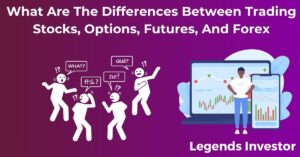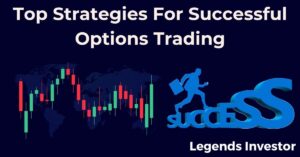Navigating the World of Trading: An Introduction
Trading is an exciting and dynamic field that attracts individuals from all walks of life, eager to capitalize on the financial markets’ opportunities. Whether you’re considering trading as a side hustle or a full-time career, understanding the basics and equipping yourself with knowledge is crucial. This guide provides a comprehensive introduction to trading, explains the different markets, and offers practical advice on education and resources to help you succeed.
Understanding the Basics of Trading and Its Significance
Trading involves buying and selling financial instruments like stocks, currencies, or commodities with the aim of making a profit. It is a key component of financial markets, offering liquidity and price discovery. Here’s a brief overview of the significance of trading:
- Liquidity: Trading provides liquidity to financial markets, making it easier to buy and sell assets without significantly affecting their prices.
- Price Discovery: Through trading, the market determines the value of financial instruments based on supply and demand.
- Economic Indicator: Trading activity can indicate broader economic trends and investor sentiment.
Explanation of Different Markets: Forex, Stocks, Commodities, etc.
Understanding the different markets is essential for selecting the right trading approach. Here’s a rundown of the major markets:
Forex (Foreign Exchange)
The forex market is the largest and most liquid financial market globally, dealing with the exchange of currencies. It operates 24/5, making it accessible for traders around the world. Key aspects include:
- High Liquidity: Allows for large trades with minimal price impact.
- Leverage: Offers the ability to control a large position with a relatively small amount of capital.
Stocks
Stock trading involves buying and selling shares of companies. It’s a popular market for those looking to invest in individual companies or diversify their portfolios. Important considerations include:
- Ownership: Buying stocks gives you ownership in a company.
- Dividends: Some stocks pay dividends, providing income in addition to potential capital gains.
Commodities
Commodity trading involves trading raw materials or primary agricultural products like gold, oil, or wheat. This market can be influenced by factors such as weather conditions and geopolitical events. Key points include:
- Diversification: Commodities offer diversification away from traditional stock and bond investments.
- Hedging: Traders often use commodities to hedge against inflation or currency fluctuations.
Other Markets
- Cryptocurrencies: Digital currencies like Bitcoin and Ethereum offer a new frontier in trading with high volatility.
- Futures and Options: These are derivative contracts that derive their value from underlying assets like commodities or stocks, offering various trading strategies.
Setting Realistic Expectations for Beginners
For beginners, setting realistic expectations is crucial. Trading is not a guaranteed way to make money and involves risk. Consider these factors:
- Learning Curve: Expect a steep learning curve and initial losses as you gain experience.
- Time Commitment: Successful trading requires significant time for research, analysis, and practice.
- Risk Management: Understand that losses are part of trading, and managing risk is essential to long-term success.
Education First: Why Knowledge is Power in Trading
A solid education is the foundation for successful trading. Here’s why knowledge matters:
The Role of Education in Risk Management
Education helps you understand risk management techniques, including:
- Position Sizing: Determining the amount to invest in each trade to manage risk effectively.
- Stop-Loss Orders: Setting limits to automatically exit a trade at a predetermined loss level.
Learning Versus Gambling: The Importance of Informed Decisions
Trading should be approached with a mindset of informed decision-making rather than gambling. Informed decisions are based on:
- Research: Analyzing market trends, economic indicators, and financial reports.
- Strategy: Developing and following a well-thought-out trading strategy.
Long-Term Benefits of a Robust Trading Education
A strong trading education provides:
- Confidence: Increased confidence in making trading decisions.
- Adaptability: The ability to adapt to changing market conditions and strategies.
- Strategic Insight: Better understanding of market dynamics and trading psychology.
Books Worth Trading For: Top Reads for Aspiring Traders
Books are a valuable resource for learning about trading strategies and market psychology. Here are some recommendations:
Classic Literature on Trading Strategies and Market Psychology
- “A Random Walk Down Wall Street” by Burton Malkiel: Offers insights into market theories and investment strategies.
- “Market Wizards” by Jack Schwager: Features interviews with successful traders and their strategies.
Recommendations for Beginners, Intermediate, and Expert-Level Traders
- Beginners: “The Intelligent Investor” by Benjamin Graham, which provides a foundational understanding of investment principles.
- Intermediate: “Technical Analysis of the Financial Markets” by John Murphy, focusing on technical analysis techniques.
- Experts: “Trading for a Living” by Alexander Elder, which covers advanced trading psychology and strategies.
Diversifying Your Reading List: Incorporating Various Market Viewpoints
Diversify your reading list to include books on different markets and trading styles. This approach provides a well-rounded perspective on trading.
Clicking with Knowledge: Online Courses and Webinars
Online courses and webinars are excellent ways to enhance your trading skills.
Taking Advantage of Free and Paid Online Courses
- Free Courses: Many platforms offer free introductory courses on trading basics.
- Paid Courses: Consider investing in paid courses for in-depth training and advanced topics.
Interactive Webinars and Workshops: Learning from Live Trading Sessions
Webinars and workshops offer interactive learning experiences where you can:
- Observe Live Trading: Watch experienced traders in action.
- Ask Questions: Get answers to specific queries from industry experts.
How to Vet the Credibility of Online Trading Educators
To ensure the quality of online courses and webinars:
- Check Credentials: Verify the educator’s qualifications and experience.
- Read Reviews: Look for feedback from past participants.
On-the-Go Learning: Podcasts and Video Channels for Traders
Podcasts and video channels offer flexibility for learning on the go.
Subscribing to Insightful Trading Podcasts
- “Chat With Traders”: Features interviews with successful traders and market experts.
- “The Trader’s Podcast”: Offers insights into trading strategies and market analysis.
YouTube and Vimeo Channels with Quality Trading Content
- “The Trading Channel”: Provides educational videos on trading techniques and strategies.
- “Rayner Teo”: Offers practical tips and tutorials for traders.
Filtering Through the Noise: Identifying Signal Versus Noise in Online Media
To find valuable content:
- Evaluate Sources: Choose content from reputable and experienced traders.
- Avoid Hype: Be cautious of content promising guaranteed returns or unrealistic results.
Trading Tools and Software: Simulation and Analysis
Trading tools and software are essential for executing trades and analyzing markets.
Demo Accounts: The Safe Space for Trying Out Strategies
Demo accounts allow you to:
- Practice Trading: Test your strategies without risking real money.
- Familiarize with Platforms: Get comfortable with trading platforms and tools.
Charting and Analysis Tools That Enhance Trading Decisions
- Technical Analysis Software: Use tools like MetaTrader or TradingView for charting and technical analysis.
- Fundamental Analysis Tools: Access economic calendars and financial reports to make informed decisions.
Software Reviews: Which Platforms Experts Recommend and Why
- MetaTrader 4/5: Widely used for forex and CFD trading with robust charting capabilities.
- Thinkorswim: Known for its advanced trading tools and research resources.
Cultivating Connections: Forums, Communities, and Networking
Connecting with others in the trading community can provide valuable support and insights.
The Value of Joining Trading Forums and Online Communities
Participate in forums and communities to:
- Share Ideas: Exchange trading strategies and insights with other traders.
- Seek Advice: Get feedback and advice from experienced traders.
Networking with Experienced Traders
- Attend Meetups: Join local trading meetups or conferences.
- Engage Online: Connect with traders through social media or professional networks.
Mentorship and Peer Learning Opportunities
- Find a Mentor: Seek guidance from experienced traders who can provide personalized advice.
- Learn from Peers: Collaborate with other traders to share experiences and learn from each other.
Real-World Insights: Workshops and Seminars
Attending workshops and seminars can enhance your trading knowledge through hands-on experience.
Attending Local and International Trading Seminars
- Local Seminars: Offer opportunities to learn from regional experts and network with fellow traders.
- International Events: Provide exposure to global trading perspectives and practices.
Immersive Workshops and the Benefit of Hands-On Experience
- Practical Exercises: Participate in simulations and trading exercises to apply your knowledge.
- Expert Interaction: Learn directly from trading professionals and industry leaders.
Selecting Events for Quality Content and Networking Potential
When choosing events, consider:
- Content Quality: Look for seminars and workshops with well-regarded speakers and practical content.
- Networking Opportunities: Choose events that offer opportunities to connect with other traders and professionals.
Continuous Learning: Staying Updated with Market News and Trends
Ongoing education is vital for adapting to changing market conditions.
Trusted News Sources and Market Analysis for Traders
- Financial News Websites: Use sources like Bloomberg, Reuters, and CNBC for up-to-date market news.
- Market Analysis Services: Subscribe to services that provide in-depth market analysis and forecasts.
The Importance of Ongoing Education in Responding to Market Volatility
Stay informed about market trends and economic events to:
- Adjust Strategies: Modify your trading strategies in response to market changes.
- Manage Risk: Implement risk management practices to protect your investments.
Building a Routine for Continuous Learning and Growth
- Set Aside Time: Dedicate regular time for learning and research.
- Stay Curious: Continuously seek out new information and insights to improve your trading skills.
Conclusion
Navigating the world of trading requires a solid foundation of knowledge, practical skills, and ongoing education. By understanding the basics, setting realistic expectations, and leveraging resources like books, online courses, and trading tools, you can build a successful trading career. Remember, trading is a journey of continuous learning and adaptation, so stay informed and remain flexible as you develop your trading expertise.



